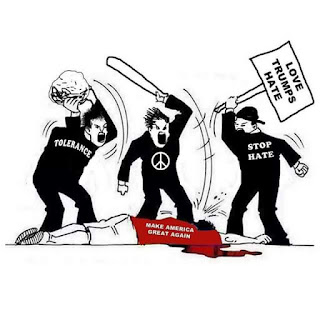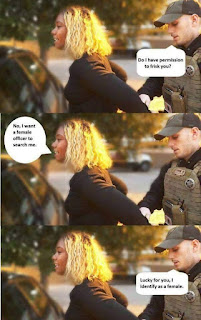"A judge in the Mexican state of Veracruz has issued new charges against former Gov. Javier Duarte, accusing him of involvement in the forced disappearance of at least 13 people." 😦https://t.co/a4u5sbQQIA— Global Awareness 101 (@Mononoke__Hime) June 25, 2018
Business Insider
written by Christopher Woody
Monday July 11, 2018
A judge in the Mexican state of Veracruz has issued new charges against former Gov. Javier Duarte, accusing him of involvement in the forced disappearance of at least 13 people.
The charge is the latest and most severe leveled at Duarte, who has already been charged with several corruption-related crimes in a sprawling investigation that has revealed pervasive graft under his administration.
Duarte took office in December 2010 and presided over increases in gang violence and kidnapping, as well as the doubling of the state's debt. Veracruz also became one of the most dangerous states for journalists during his tenure, including one high-profile case in which Duarte was questioned about a photojournalist's killing.
In September 2016, the Institutional Revolutionary Party suspended his membership after federal authorities began investigating him for charges that included the diversion of public funds and embezzlement. He and his associates are accused of stealing more than $3 billion, in part by laundering state funds through phantom companies.
On October 12, 2016, he resigned, two months before the end of his six-year term. The PRI then expelled him, and a Mexican judge issued an arrest warrant for him. His whereabouts were unknown until he was apprehended in Guatemala in spring 2017. He was extradited to Mexico in July 2017.
Because of the terms of the extradition treaty between Mexico and Guatemala, Duarte can only be processed on the charges for which he was extradited, which were related to corruption, so the forced-disappearance charges cannot be immediately applied. (Though the Veracruz government can request an exception.)
But Duarte is not the first member of his administration to be implicated.
On February 8, a federal judge charged 31 Veracruz state police and security officials over the forced disappearances of 15 people between April and October 2013. Among those charged was Arturo Bermudez, who was secretary of public security and is possibly the highest-ranking Mexican official to be charged with such a crime, according to The Intercept.
According to prosecutors, those charged were accused of implementing an "illegal policy" under which suspected members of organized-crime groups were detained without orders, tortured, and disappeared.
Veracruz state-security officials have also been accused of operating illegal detention centers, including one at a police academy where interrogations and disappearances are believed to have taken place. The facility also had a zoo that reportedly housed crocodiles, a lion, and a jaguar. A mother of a disappeared woman told The Intercept of rumors that detainees would be killed and fed to the animals.
Veracruz is a hub for organized crime, first a stronghold for the Gulf cartel and later for the Zetas, who broke away from the Gulf cartel in the late 2000s and moved into Veracruz, reportedly at the invitation of Duarte's predecessor.
Some believe Duarte's predecessor allowed the Zetas to take over the state and that Duarte let the Jalisco New Generation cartel into the state in order to push out the Zetas.
In September 2012, federal officials arrested 35 state police officers allegedly working for the Zetas. Shortly after that, Bermudez is believed to have instituted a new policy targeting suspected Zetas, creating two groups within the police force to track down, pick up, torture, and disappear people.
A regional boss for the Zetas who commanded a team of hit men in Veracruz told The Intercept that Duarte did switch government's allegiance from the Zetas to the CJNG and that his team did have violent encounters with state police officers involved in disappearances.
Duarte "had to form those groups to disappear the criminal group," the Zetas boss said, adding that the government in Veracruz was an equal member of the criminal morass in the state.
Grieving families, frustrated by government inaction, have organized groups to search for the bodies of their missing loved ones in Veracruz. Such efforts have helped unearth the remains of hundreds of people.
At the end of Duarte's term, his PRI government had only recognized 524 disappeared people. The next government, from the opposition National Action Party, increased that to at least 3,600 disappeared between 2006 and 2016.
'Instruments of their corruption'
State security forces are not the only ones implicated in abuses and disappearances. Members of the Mexican military have also been accused of extrajudicial killings and forced disappearances. Marines deployed to northern Tamaulipas have been accused of involvement in more than 20 abductions around Nuevo Laredo during the first few months of 2018.
But the proximity state and local police have to political power and to criminal elements, particularly in northeast Mexico, has led to them being compromised.
State governors, especially ones from the PRI, which ran Mexico as a de facto one-party state from 1929 to 2000, "have been engaged in massive corruption, and most of that has been involvement with the cartels, taking money from the cartels" Mike Vigil, former director of international operations for the US Drug Enforcement Administration, said in an interview earlier this year.
"The mechanism that they have always used is the municipal and the state police as instruments of their corruption," Vigil said, "and the police at those levels have very close ties with the cartels," often helping protect drug shipments or eliminating rivals.
In recent years, changes in the party in power at the state level have led to increased violence by disrupting existing ties between the outgoing government and criminal groups. But, as in Veracruz, a new governor from the same party can still lead to violence.
"What I saw was when these corrupt governors had them engage in criminal activities, then the police would mushroom [their] activities into murders and to kidnappings and to many, many other things, given the fact that they now had the blessing of the governor," Vigil said.
"So they have basically operated as criminal networks, more so than they have as civil servants."






































No comments:
Post a Comment